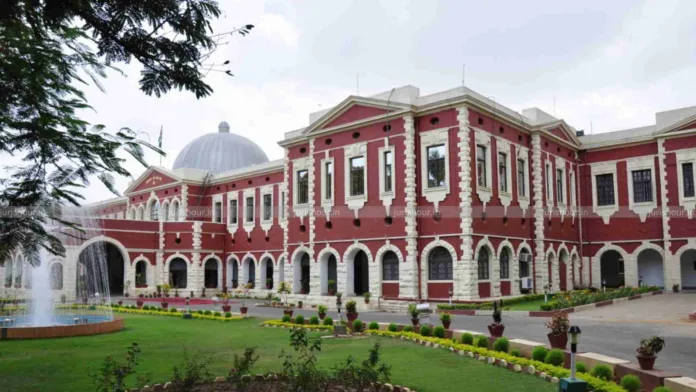The Jharkhand High Court has quashed the Goods and Service Tax (GST) demand and penalty imposed against legal heir of deceased assessee.
The bench of Chief Justice M.S. Ramachandra Rao and Justice Rajesh Shankar has observed that in the absence of any material referred to by the department as to on what basis it is held that the petitioner was continuing the business in the name of his father’s proprietary concern after his father’s death in spite of the petitioner obtaining a fresh registration in his own name on 24.03.2018, the order is perverse, based on no evidence and cannot be sustained.
The petitioner’s father, Navtej Kumar Shangari had obtained a certificate of registration under the GST Act in the trade name M/s. N. Kumar and Company w.e.f. 01.07.2017.
Navtej Kumar Shangari died on 13.02.2018. His son Rishi Shangari, who is the petitioner, applied for registration and another certificate of registration was issued on 24.03.2018 in the same proprietary concern’s name.
Curiously, an order was passed on 20.12.2022 under GST DRC-07 by the department for the tax period April 2018 to March 2019 with regard to the father of the petitioner, and another order on the same date for the tax period from April 2019 to March 2020.
The registration in favour of the proprietary concern of the father came to be cancelled on 10.01.2020.
A summons was issued under section 70 to the father of the petitioner who no more was regarding non-payment of GST. The petitioner filed a reply stating that his father died on 13.02.2018 and even enclosed the copy of the death certificate. He pointed out that there cannot be any proceeding initiated against a dead person after his death and requested to waive the liability.
However, the order came to be passed by the department in regard to the proprietary concern of the petitioner’s deceased father quoting section 93(1)(a) of the CGST Act, 2017. In that order it is held that if the business is carried on by a person’s legal representative after his death, the legal representative would be liable to pay tax, interest or penalty. But department did not provide details of any material evidence to show as to how the petitioner was said to be continuing business of the father’s proprietary concern having himself obtained a fresh registration.
In the proceedings having noted the death of the petitioner’s father on 13.02.2018, the department stated that petitioner is liable to pay the entire GST due along with applicable interest and penalty of his late father’s firm.
The court allowed the petition and quashed the order imposing GST demand and penalty against the legal heir of the deceased.
Case Details
Case Title: Rishi Shangari Versus UOI
Case No.: W.P.(T) No. 523 of 2023
Date: 15.04.2025
Counsel For Petitioner: Deepak Kumar Sinha
Counsel For Respondent: Rahul Saboo

